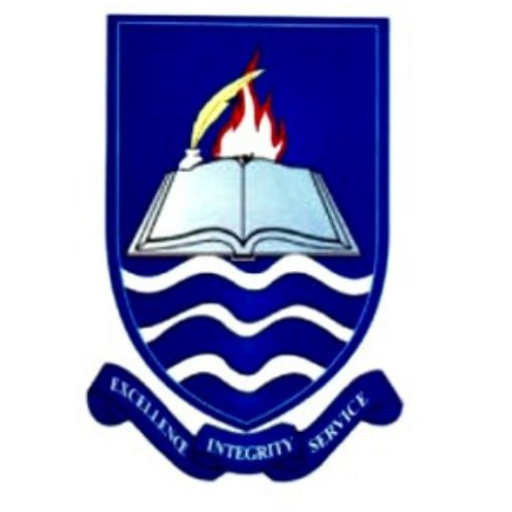Assessment of Information Technologies for Teaching and Learning at Rivers State University, Nkpolu-Oroworukwo, Port Harcourt
Keywords:
Assessment, Students, Information Technology, Teaching, Learning.Abstract
It is essential for lecturers and students to maintain above-average proficiency in information technology to ensure competence and effectiveness in teaching and learning, particularly in Rivers State University, Port Harcourt. This study aimed to assess students' use of information technology in the university. It was guided by three objectives, three research questions, and three hypotheses, employing a descriptive survey research design. The study's population comprised 31,048 individuals, including 1,109 academic staff and 29,939 students. A sample size of 689 participants, 294 students and 395 lecturers was determined using the Taro Yamane formula. The stratified random sampling technique was adopted for participant selection. Data were collected using the Assessment of Information Technologies for Teaching and Learning in Rivers State University, Port Harcourt Questionnaire, rated on a four-point scale and validated by experts. The instrument's reliability was established using Cronbach's Alpha, yielding coefficients of 0.75, 0.79, and 0.81 for its three clusters. Researchers, with the assistance of research aides, distributed 689 copies of the questionnaire. Data analysis was conducted using mean and standard deviation to address research questions, while hypotheses were tested using a z-test at a 0.05 significance level, with a critical value of ±1.96. Findings indicated that computers, application software, and the internet are integral to teaching and learning at Rivers State University. Furthermore, no significant difference was found between lecturers and students regarding their use of these technologies. Based on these findings, it was recommended that the university management implement regular training and workshops to enhance students’ and faculty members' proficiency in using computers, application software, and internet resources for academic purposes. The university should allocate resources to procure and maintain advanced application software tailored to various disciplines, ensuring students and lecturers have access to cutting-edge tools that support learning and research.
References
Adebayo, A. O., & Johnson, A. O. (2019). Impact of educational software on secondary school students' academic performance. Journal of Educational Technology, 15(3), 105-118.
Adebayo, A. O., & Johnson, A. O. (2020). The role of computers in enhancing mathematics and science education in secondary schools. International Journal of Science Education, 40(6), 658-672.
Adekunle, M. A., & Oyewole, O. A. (2019). Information technology as a driver of organizational efficiency in education. Journal of Educational Management, 18(2), 92-107.
Adeyemi, M. O., & Salako, M. A. (2020). The impact of learning management systems on student engagement in tertiary institutions. Educational Technology Research, 22(1), 45-59.
Ajayi, A. O., & Kolade, O. B. (2022). Computers in education: Bridging the gap in knowledge dissemination. Journal of Educational Innovations, 24(2), 99-112.
Ayo, D. A., & Musa, H. S. (2021). Revolutionizing education through the internet: A global Eperspective. Journal of Educational Technology and Society, 24(4), 78-92.
Ayo, D. A., Olufemi, J. T., & Adebisi, K. A. (2023). Enhancing teachers’ capacity in using computers for teaching in developing countries. International Journal of Educational Technology, 19(1), 33-47.
Bello, I. A., & Uche, O. N. (2022). The internet and e-learning: A transformative tool in education. Education and Technology in the 21st Century, 30(3), 121-137.
Eze, C. O., & Uchenna, M. A. (2018). Computer-based testing (CBT) and its impact on assessment efficiency in tertiary institutions. Journal of Higher Education Studies, 29(2), 155-169.
Eze, C. O., & Uchenna, M. A. (2020). Adoption of Learning Management Systems in universities: Enhancing student access to resources and academic success. Educational Technology Journal, 28(4), 123-135.
Ibrahim, F., & Omole, S. S. (2021). The impact of computer integration on student engagement and academic performance in university classrooms. International Journal of Education and Learning Technology, 14(3), 187-199.
Idris, A. L., & Ogunde, O. I. (2023). Breaking geographical barriers: The role of the internet in remote education. Educational Technology Review, 35(1), 21-34.
Jamaica, N. J. (2024). The use of information and communication technology (ICT) in teaching and learning businesses. In E. O.Nweke, P. N. Ololube, D. Ukpabi, D. Samuel, M. Okon, A. Wegbom, and A. George (Eds.) Entrepreneurship education and future-proof business (A Multi-disciplinary Approach) Volume 1 (248-255). Port Harcourt: Obins International Ltd.
Nwachukwu, P. F., & Eze, M. O. (2020). The role of computers in modern education systems. Journal of Educational Technology, 18(3), 199-212.
Okonkwo, E. A., & Adeyemi, T. I. (2019). Virtual simulations in medical education: Enhancing practical learning and reducing costs. Journal of Medical Education, 34(4), 112-125.
Okoro, O. S., & Njoku, M. T. (2023). Learning management systems: Enhancing the effectiveness of course management and student engagement. Journal of Online Education, 29(1), 45-58.
Olawale, S. T., & Thomas, A. O. (2022). Enhancing student-centered learning through computer-based platforms. Educational Innovations Journal, 23(2), 68-82.
Oluwaseun, S. O., & Akintunde, O. T. (2022). Software applications in education: From word processing to interactive learning. International Journal of Educational Software, 14(1), 77-92.
Oluwaseun, S. O., & Akintunde, O. T. (2023). Challenges in the integration of computers into education in developing regions. Educational Technology and Pedagogy, 25(3), 99-113.
RSU Admission Guide (2024). Rivers State University-official website. https://www.rsu.edu.ng
Williams, F. T., & Adebayo, A. I. (2021). The role of information technology in global knowledge dissemination. International Journal of Information Technology and Education, 18(2), 52-65.








